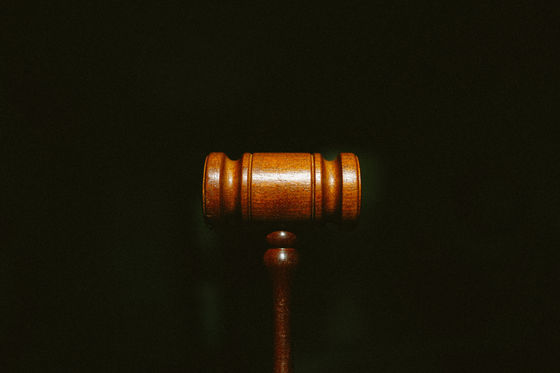A test to diagnose if your group or community is 'cultivated'

John D. Spinks, who has been dominated by the cult religion since childhood, wrote about his life and the experience of losing his family until he escaped from the cult religion at the age of 22. '
Cult Test | Cult Escape | Are you In A Religious Cult?
https://cult-escape.com/cult-test/
The cult diagnostic test published by Spinks is a completely anonymous, privacy-friendly test, so users do not need to provide any personal information. The number of tests is only 10 and you only have to answer with 2 choices, 'Yes' or 'No'.
◆ 1: Is the leader of your group the highest authority in the group?

Spinks says that the cult religion begins with the existence of a charismatic leader who claims to have the best knowledge and evolves. According to him, cult leaders can make followers believe in their views and obey orders.
◆ 2: Do leaders have impressively crafted names and titles?

Most cult leaders give themselves the names and titles they have created to impress their followers with their 'high status.' Therefore, many cult leaders call themselves 'children of God,' 'prophets,' 'saviors,' 'guru,' and 'apostles.'
◆ 3: Since leaders are always right, are you not allowed to criticize leaders, even if the criticisms are true?
Cult leaders persuade their followers to deprive them of their critical thinking abilities in return for their sense of belonging, authority, and purpose. So for followers, the leader is always right, and it doesn't matter what the evidence or logic suggests. In other words, the cult always justifies the wrongdoing of the leader. And criticism of leaders is always forbidden in cults.
◆ 4: Are group members negative about reading texts that are critical to the group?

Cult religions usually only allow members to read information about their organization through 'approved sources.' Cults consider their critical thinking to be an infectious disease and make every effort to control it. Members suspected of being critical of the cult are isolated from outside information and encouraged to focus solely on the cult doctrine. And members who are negative to the cult are considered persecutors and are often labeled as 'anti' or 'apostate', making them reluctant to consume content that is critical of the group. ..
◆ 5: Do group members say 'there is no good reason' for those leaving the group?
The cult religion considers itself to be the ultimate authority of truth, and believes that followers cannot leave the cult without compromising integrity. Therefore, cult religions tend to despise people who leave the group as 'traitors,' 'with demons,' and 'corrupted people.'
◆ 6: Does the group have any doubts about the world outside the group?
Many cult religions position themselves as the only shelter from the evil outside world. As a result, conspiracy theories, devastating thoughts, and persecution are widespread in cults. Also, cults often engage in solicitation activities to attract more paying members. And the solicitation activity is justified as 'to'save'people from the evil world.' And those who reject the cult's message are accused and insulted as 'traitors' or 'with the devil.'
◆ 7: Does your group believe that you are the right religious group / group / community? Or do you believe that you are the only person with the 'right' doctrine?

The cult religion always recognizes itself as the 'right' being. Therefore, the cult religion is considered to be the right group with the right doctrine, the right leader, and the leader is the 'right' being who directs the rules that followers should follow.
◆ 8: Are there any rules for groups?

The cult religion rules the followers. Cult leaders set rules and want their followers to obey them. This rule states what followers should not wear, where they cannot live, who cannot eat together, who cannot marry, who must not engage in work, who cannot associate, and who cannot receive education. Prohibitions such as are described.
◆ 9: If I leave the group I belong to, is there a risk of emotional separation even if the remaining members are family members?

The cult religion is not happy with the withdrawal of members. That is because, as mentioned above, the withdrawal of the cult is regarded as 'there is no good reason'. Therefore, members who leave the cult will be treated as negative beings. And there will be an emotional distance between the remaining members of the cult and the withdrawn person, even if they are family members. As a result, cult members often shy away from former members and consider them 'dirty,' 'wicked,' 'deceived,' 'apostate,' and 'with the devil.'
◆ 10: If you leave the group, will you not be able to live a 'normal family life' with the family members who remain in the group?

If any member of the family leaves the cult religion, rules may prohibit those who remain in the cult and those who leave the cult from living a 'normal family life.'
The more questions that apply to the above 10 questions, the more likely it is that the group to which you belong is a cult. However, detailed countermeasures are not displayed, so if you want to move away from the cult, please refer to Mr. Spinks' book.
You can answer the actual cult diagnostic test from the following page.
Cult Test | Cult Escape | Are you In A Religious Cult?
https://cult-escape.com/cult-test/

Related Posts:
in Web Service, Posted by logu_ii







